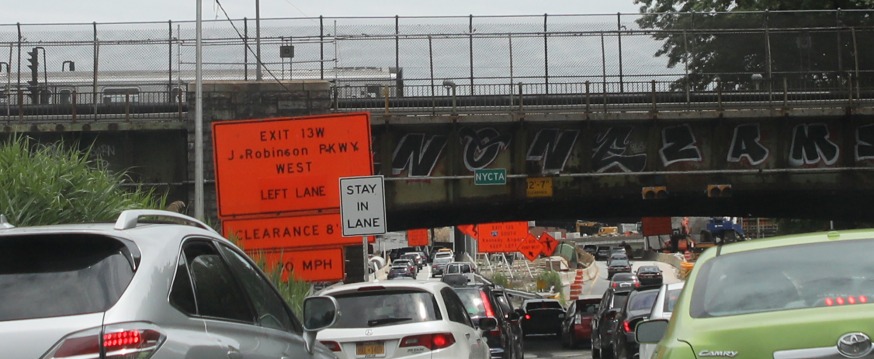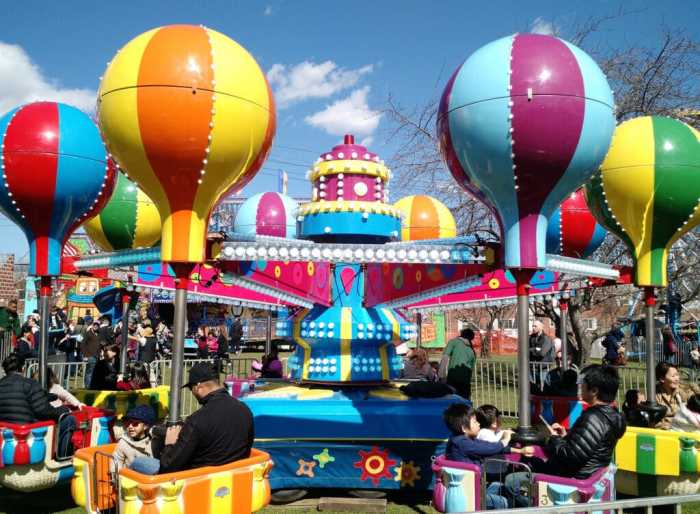
Construction taking place last year at the Kew Gardens Interchange (Photo: Christina Santucci/Queens Post)
Dec. 6, 2022 By Max Murray
The decade-long project to overhaul the Kew Gardens Interchange, long known for its congestion and tangled web of roadways, has been completed.
Gov. Kathy Hochul announced Monday the completion of the $739 million Kew Gardens Interchange project, marking the conclusion of a multi-phase undertaking by New York State to revamp the heavily traveled commuter corridor.
The Kew Gardens Interchange is the complex intersection of the Grand Central Parkway, the Van Wyck Expressway, the Jackie Robinson Parkway and Union Turnpike, that serves nearly 600,000 vehicles daily. In the past, major deficiencies throughout the interchange contributed to congestion and higher than average accident rates.
The project, which took 12 years to complete, addressed a number of key challenges stemming from the structural and operational deficiencies of the old infrastructure.
“The transformation of this vital interchange near one of New York’s major airports is the latest accomplishment in our efforts to modernize the state’s transportation network,” Hochul said in a statement. “The complete overhaul of Kew Gardens Interchange will provide a safer, less congested network of roads…enhancing the quality of life [for commuters] and boosting the regional economy for decades to come.”
The revamped Kew Gardens Interchange allows for faster travel times, safer merging and exiting, and more reliable connections for the hundreds of thousands of commuters, travelers and local businesses who use it daily to reach the John F. Kennedy International Airport and other key destinations throughout the region.
It features 22 new bridges, three rehabilitated bridges, wider travel lanes, new lane configurations, updated signage, upgraded stormwater drainage, and a new dedicated shared use path for pedestrians and bicyclists.
The project, which involved several phases, began in 2010, with officials at the time recognizing the interchange’s many deficiencies.
“The Kew Gardens Interchange is one of the most tangled knots of congestion in all of New York City, impacting the economy of the city and affecting the quality of life of all Queens residents,” said Stanley Gee, who was the acting NYS DOT Commissioner, in 2010. “The New York State Department of Transportation has worked with elected officials and community members to develop a plan that will untangle the knots, providing a smooth, safe flow of commuters and commerce in Queens.”
The plan was finally completed yesterday, with local officials welcoming the end of construction.
“The completion of this multi-stage project brings brand new travel infrastructure to this vital roadway,” said State Sen. Joseph Addabbo in a statement. “By making these roads easier and safer to travel — for drivers, cyclists and pedestrians alike — it will benefit commuters who use these roads every day as well as those traveling through our city.”






